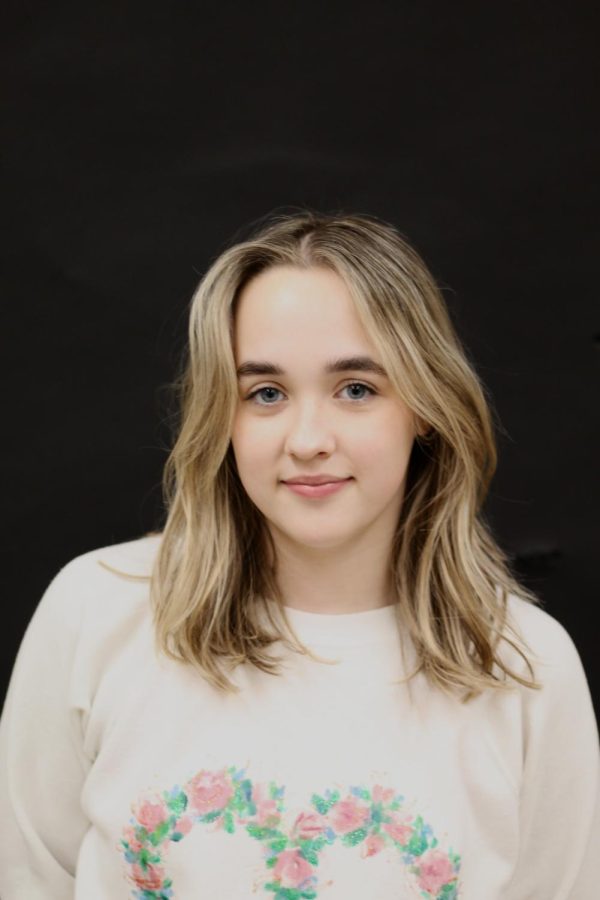Audie Ethridge: Rose Court Princess
April 17, 2023
In March, Audie Ethridge, a senior at Ida B. Wells, was elected to this year’s iteration of the Rose Court, a storied Portland organization. The Headlight spoke with her about her position, her goals, and the value of the Rose Court.
Who are you?
Ethridge has attended Ida B. Wells since her freshman year, and during her time at Wells she has put together an impressive resume. She is the ASB Director of Communications, meaning that she runs school social media accounts, and is the President of CommuniCare on Leadership, a position that involves directing fundraising for local nonprofits. She has also been a part of No Place for Hate for the last two years, and is involved in diversity, equity, and inclusion initiatives within Leadership.
As her position requires, Ethridge has a strong focus on community service which includes her volunteering work with Blanchet House, and tutoring low-income students through Friendly House. Working with children is one of her primary passions, and many of her community service positions have centered around providing resources for children to learn and be successful.
“I think there are so many really important skills you can learn from being an educator…I genuinely think that if you can successfully be a teacher, it will set you up to be successful in anything else that you do,” said Ethridge. When she isn’t in school or volunteering, Ethridge likes to read, dance, spend time with friends, and hang out with her cats.
What is the Rose Court?
Each year, the court is comprised of 15 girls, each representing a Portland area school. The princesses are interviewed by a panel of judges and elected by their peers. It is also required that they have completed 20 hours of community service prior to their election. Beginning on May 5th, all members of the court are pulled from school, and begin traveling as a court.
“Three to four days a week, we will go do community outreach volunteer activities,” said Ethridge. “Some of that includes having dinner with the mayor or going to Salem to visit the capitol. Each day we do something different, but it’s all about volunteering and preserving tradition.” In mid-June, a queen is selected from among the 15 princesses, who retains this position for the entire year.
What made you want to be on the Rose Court?
“Freshman year, I remember doing voting for the Rose Court,” Ethridge said. “I didn’t really know what it was, but at first I was captivated by being able to vote for this huge position. I remember it really catching my eye.” Last year, she began researching the position more and decided that she wanted to run for it this year. “It’s a once in a lifetime opportunity. From what I’ve heard, it’s very transformative and you learn tons of really valuable skills about public speaking and how to carry yourself.”
Ethridge is confident that the skills she hopes to gain from the Rose Court will benefit her in whatever future path she chooses. “The most that I’ve learned has accumulated from what I’ve done. Like experiences as opposed to something in a classroom. I learn the most from lived experiences,” said Ethridge. It’s not just about concrete skills such as public speaking either. Much of the appeal of this position for Ethridge centers around self-discovery. “I think this will help me learn alot about myself to kind of figure out who I want to be, and what I like doing.”
Since the court is made up of girls from across Portland, Ethridge is excited to get acquainted with people she wouldn’t otherwise meet, whose backgrounds and perspectives may be different than her own. “I think it’s a really cool opportunity to have this group of girls who have similar goals but don’t always have the same story,” said Ethridge.
Why is the Rose Court relevant in Portland today?
“When someone talks about preserving tradition, I instantly think that it’s archaic and outdated. But I feel like they try and preserve what Portland is and keep up this tradition of what the Rose Court is,” said Ethridge. “I try to view it less as being archaic and more like really keeping what’s important about Portland,” she said. “Portland is facing increasing amounts of homelessness and addiction, and it’s not like the Rose Court does anything to combat those issues. It’s not political. But I think it’s used to kind of take people’s minds off of it. Everyone is welcome to come to the parades, to come to City Fair, to see the floats. I think it’s meant to unify, to bring Portland together, and to have fun.”



